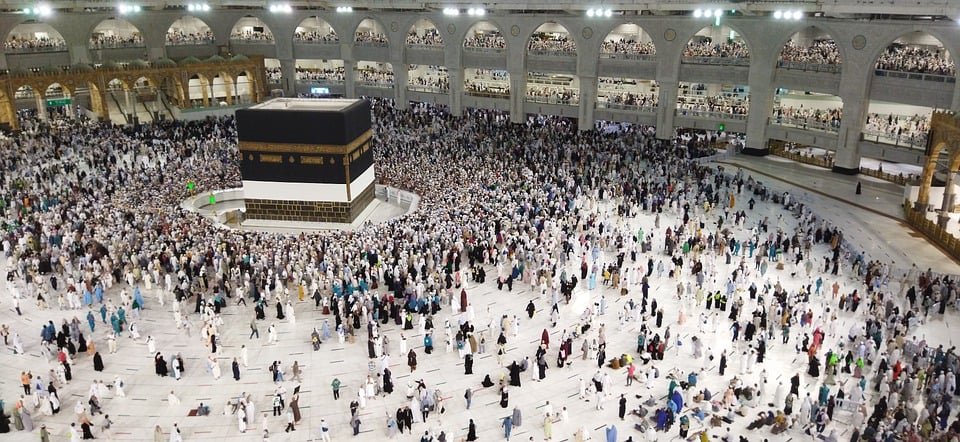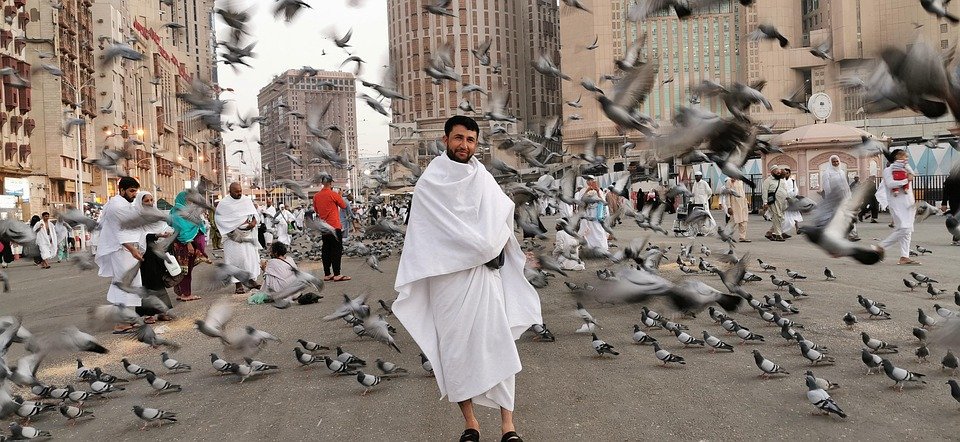Thinking about performing Hajj vs Umrah but unsure about the differences? You’re not alone! Many Muslims wonder how these two sacred pilgrimages compare, and I’m here to break it down for you in a simple, easy-to-understand way. Whether you’re planning your first trip or just curious about Islamic rituals, this Hajj vs Umrah guide will give you all the details you need. I promise, by the end of this article, you’ll have a clear understanding of their significance, requirements, and how to prepare for each.
Now, you might be wondering—why trust us for this information? Well, at Hajj2026.org, we’ve been helping pilgrims with Umrah and Makkah-Madinah travel since 2016—that’s 9 years of experience! I feel confident saying that we know the ins and outs of these journeys, from the spiritual aspects to the practical steps. In my opinion, having the right guidance makes all the difference, and that’s exactly what we provide. So, let’s get started and explore everything you need to know about Hajj vs Umrah!
Hajj vs Umrah: Key Differences and Benefits Explained
Planning a spiritual trip to Makkah? You might be wondering about the differences between Hajj and Umrah. Both are sacred pilgrimages in Islam, but they have unique rituals, timings, and significance. Understanding these can help you decide which one suits your spiritual goals.
At Hajj2026.org, we’ve been guiding travelers since 2016, helping them explore Makkah and Madinah with ease. While we don’t directly organize Hajj or Umrah, we connect you with trusted tour operators who ensure a smooth experience. Let’s break down the key differences and benefits of these two holy journeys.
1. What Is Hajj?
Hajj is one of the five pillars of Islam, and every financially and physically capable Muslim must perform it at least once in their lifetime. It takes place during the Islamic month of Dhul-Hijjah, following a strict schedule over five to six days. The rituals include wearing Ihram, circling the Kaaba, walking between Safa and Marwa, standing at Arafat, and stoning the devil in Mina.
I think Hajj is more than just a pilgrimage—it’s a test of patience, faith, and unity. Millions gather from around the world, creating an atmosphere of devotion. The experience is intense but deeply rewarding. Unlike Umrah, Hajj has fixed dates, so planning ahead is crucial.
2. What Is Umrah?
Umrah, often called the "lesser pilgrimage," can be performed any time of the year. It’s shorter and simpler than Hajj, involving Ihram, Tawaf (circling the Kaaba), Sa’i (walking between Safa and Marwa), and shaving or trimming the hair. Many Muslims perform Umrah during Ramadan for extra blessings, but it’s not obligatory.
In my opinion, Umrah is perfect for those seeking a spiritual recharge without the long commitment of Hajj. Families, elderly travelers, and first-time visitors often prefer it because of its flexibility. Since 2016, Hajj2026.org has helped countless pilgrims arrange hassle-free Umrah trips with trusted partners.
3. Timing and Duration
Hajj occurs only once a year, from the 8th to the 12th of Dhul-Hijjah. The dates shift annually based on the lunar calendar, so pilgrims must plan months in advance. The journey lasts about five to six days, with specific rituals each day. Missing a key step can affect the validity of Hajj.
Umrah, on the other hand, can be done anytime, even multiple times a year. It usually takes 3-4 hours if performed without delays. Some pilgrims combine Umrah with visits to Madinah, making it a week-long spiritual retreat. I feel this flexibility makes Umrah more accessible for many Muslims.
4. Spiritual Significance
Hajj holds immense religious weight—it’s a once-in-a-lifetime duty that purifies sins and strengthens faith. The Prophet Muhammad (PBUH) said Hajj wipes away past wrongs if performed sincerely. The gathering at Arafat is considered the peak of the pilgrimage, where prayers are most likely to be accepted.
Umrah also carries great blessings. The Prophet (PBUH) mentioned that performing Umrah removes poverty and sins. While not mandatory, it’s highly recommended. Many people perform Umrah before Hajj to prepare spiritually. We at Hajj2026.org have seen how these journeys transform lives, bringing peace and closeness to Allah.
5. Physical and Financial Requirements
Hajj demands more physical endurance due to its longer duration and crowded rituals. Elderly or frail individuals may find it challenging. Financially, it’s costlier because of fixed dates, higher travel expenses, and mandatory sacrifices (Qurbani). Governments often regulate Hajj quotas, adding another layer of planning.
Umrah is less strenuous and more budget-friendly. Since it can be done anytime, travelers can choose off-peak seasons for lower costs. Families with young children often prefer Umrah for its manageable pace. Over the past nine years, we’ve helped many find affordable Umrah packages through reliable operators.
6. Rewards and Blessings
Both Hajj and Umrah bring immense spiritual rewards, but Hajj holds a unique status. A properly performed Hajj earns the pilgrim the status of "Hajj-e-Mabroor," meaning an accepted Hajj, which promises Paradise. The hardships endured during Hajj are believed to cleanse sins completely.
Umrah, though smaller in scale, is still highly virtuous. Performing it in Ramadan is said to equal Hajj in reward (though it doesn’t replace the obligation). Many Muslims perform Umrah to seek forgiveness or fulfill personal prayers. I think both journeys offer deep spiritual fulfillment in different ways.
7. Which One Should You Choose?
If you’re physically and financially able, Hajj is a must at least once in your life. It’s a profound experience that strengthens faith and connects you with Muslims worldwide. However, if you’re looking for a shorter, more flexible pilgrimage, Umrah is an excellent choice.
Since 2016, Hajj2026.org has assisted pilgrims in making informed decisions. While we don’t directly provide Hajj or Umrah services, we link you with experienced tour operators who ensure a smooth journey. Whether you choose Hajj or Umrah, both bring you closer to Allah and leave lasting spiritual benefits.
Final Thoughts
Hajj and Umrah serve different purposes but share the same goal—seeking Allah’s pleasure. Hajj is a once-in-a-lifetime obligation, while Umrah is a flexible act of worship. Whichever you choose, proper planning and sincere intention are key.
If you need guidance, Hajj2026.org is here to help. With nine years of experience in Makkah and Madinah travel, we make your pilgrimage journey easier. Reach out to us for trusted recommendations and travel tips!

